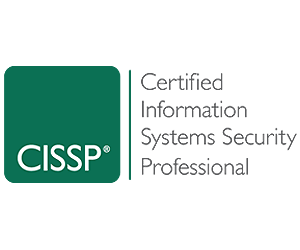Cybersecurity is hot right now. Really hot. With cyberattacks happening daily, companies are in dire need of protection. This has skyrocketed the demand for cybersecurity professionals. In fact, there were 457,000 cybersecurity job openings in the United States alone in January 2025.
Not all cybersecurity certifications are equal, though. Some can land you a job tomorrow, while others might gather dust. I’ve seen many waste time and money on certifications that employers don’t value.
So which certifications actually matter? Let me share the 10 most popular cybersecurity certifications that can significantly boost your career and salary.
1. CompTIA Security+ – The gateway to cybersecurity

If you’re new to cybersecurity, CompTIA Security+ is your best friend. It’s the most sought-after certification globally, with over 700,000 certification holders worldwide.
It covers all the basics you need to know. Network security, cryptography, risk management – all the fundamentals are there. Plus, it meets Department of Defense requirements, making it a favorite among government contractors.
Average salary: $99,446 per year
The exam costs $392 and takes 90 minutes. You need a score of 750 out of 900 to pass. No prerequisites required, but CompTIA recommends having Network+ and some IT experience first.
I remember when I first got my Security+. It changed my career. Six months after getting certified, I landed my first cybersecurity role with a $25,000 salary increase. That piece of paper changed everything.
2. CISSP – The gold standard for security professionals

The Certified Information Systems Security Professional (CISSP) is the most respected certification in cybersecurity. If Security+ is your entry ticket, CISSP is your VIP pass to the executive suite.
There are currently 156,054 CISSP holders worldwide, and they command serious respect. This certification covers eight security domains and requires real-world experience to even attempt.
Average salary: $175,583 per year (including bonuses)
But here’s the catch – you need five years of experience in cybersecurity to get certified. The exam is brutal too. Up to 175 questions in four hours, and you need 700 out of 1000 points to pass.
CISSP opens doors to roles like Chief Information Security Officer, IT Director, and Security Manager. In major cities like San Francisco, CISSP holders can earn over $200,000 annually.
3. Certified Ethical Hacker (CEH) – Think like a hacker

Want to learn how hackers think? The Certified Ethical Hacker certification from EC-Council teaches you exactly that. It’s all about learning to hack… legally.
CEH focuses on penetration testing and ethical hacking techniques. You’ll learn footprinting, scanning, system hacking, and more. It’s perfect for anyone who wants to get into offensive security or red team operations.
Average salary: $87,877 per year
The certification covers the latest hacking tools and techniques. You’ll understand how attackers think and operate, which makes you better at defending against them. It’s like learning the enemy’s playbook.
One cybersecurity analyst I know said, “Getting my CEH was like turning on a light switch. Suddenly, I could see vulnerabilities everywhere. It completely changed how I approach security.”
4. CISA – The audit expert’s choice
The Certified Information Systems Auditor (CISA) is the go-to certification for audit professionals. It’s ideal for those aiming to excel in compliance, risk management, or auditing fields.
CISA boasts over 40 years of history, solidifying its status as the pinnacle for IT audit experts. Currently, over 35,000 CISA holders are making their mark globally.
Average salary: $109,713 per year
To earn the CISA, candidates must have five years of experience in auditing, control, security, or assurance. The exam, consisting of 150 multiple-choice questions, spans four hours. Achieving a score of 450 out of 800 is the benchmark for passing.
CISA professionals often find themselves in roles such as IT auditors, internal auditors, or information risk analysts. The certification also meets Department of Defense requirements, making it highly sought after for government positions.
5. CISM – For future security managers
The Certified Information Security Manager (CISM) is tailored for management-level professionals. It’s the pathway for those aspiring to lead security teams and make strategic decisions.
With over 50,000 CISM holders worldwide, this certification commands high salaries. It focuses on governance, risk management, and incident response from a managerial standpoint.
Average salary: $148,622 per year
CISM ranks third in terms of highest-paying IT certifications. It’s an excellent choice for security practitioners looking to transition from technical roles to management positions.
The exam demands five years of experience in information security management. Interestingly, experience waivers are available for education and other certifications.
6. CCSP – Cloud security specialist
Cloud computing’s ubiquity has created a huge demand for cloud security professionals. The Certified Cloud Security Professional (CCSP) from ISC2 demonstrates expertise in securing cloud environments.
This certification spans six domains, including cloud architecture, data security, and compliance. It’s vendor-neutral, applicable to AWS, Azure, Google Cloud, and other platforms.
Average salary: $148,202 per year
CCSP requires five years of IT experience, with three years in information security and one year in cloud security. The exam, with 125 questions, takes three hours.
As companies increasingly move to the cloud, CCSP holders are incredibly valuable. Cloud security engineers with this certification often earn over $150,000 annually.
7. GIAC certifications – Hands-on technical skills
The Global Information Assurance Certification (GIAC) program offers over 50 different cybersecurity certifications. These are highly technical, hands-on certifications that focus on practical skills.
GIAC has granted 173,822 certifications worldwide. Popular options include GSEC (Security Essentials), GPEN (Penetration Tester), and GCIA (Intrusion Analyst).
GIAC certifications are closely tied to SANS training courses, which are renowned for their excellence. They’re pricey but offer invaluable hands-on experience.
These certifications are ideal for technical professionals aiming to showcase their skills in specific areas like penetration testing, incident response, or digital forensics.
8. OSCP – The ultimate penetration testing certification
The Offensive Security Certified Professional (OSCP) is the most respected penetration testing certification in the industry. It’s not just about memorizing facts. It’s a hands-on practical exam where you actually hack into systems.
The OSCP exam is legendary for being difficult. You have 24 hours to compromise multiple machines in a lab environment. It’s like a cybersecurity boot camp from hell.
Median salary: £90,000 ($110,000) in the UK
This certification has no prerequisites, but you better know your stuff. You need solid understanding of TCP/IP, Linux, Windows, and scripting languages like Python or Bash.
One penetration tester told me, “OSCP was the hardest thing I’ve ever done in my career. But it’s also the most rewarding. Employers know that if you have OSCP, you can actually hack systems, not just talk about it.”
9. CompTIA CASP+ (SecurityX) – Advanced security practitioner
CompTIA Advanced Security Practitioner (CASP+), now called SecurityX, is designed for senior technical professionals. It’s the highest-level CompTIA security certification.
CASP+ covers enterprise security, risk management, and technical integration. It’s perfect for security architects, senior security engineers, and technical leads.
CompTIA recommends ten years of IT experience with at least five years in hands-on security roles. The certification focuses on real-world scenarios and critical thinking.
This certification bridges the gap between technical skills and business knowledge. It’s ideal for professionals who need to communicate security concepts to executives and make strategic decisions.
10. CompTIA CySA+ – The cybersecurity analyst specialist
The CompTIA Cybersecurity Analyst (CySA+) certification is perfect for hands-on security analysts. It focuses on threat detection, analysis, and response.
CySA+ covers threat management, vulnerability management, cyber incident response, and security architecture. It’s more advanced than Security+ but accessible to intermediate professionals.
This certification is ideal for SOC analysts, threat hunters, and incident responders. It teaches you how to use security tools effectively and analyze threats in real-time.
CompTIA recommends having Security+ and Network+ plus four years of hands-on experience before attempting CySA+.
Which certification should you choose?
Here’s my honest advice after years in this field: Start with Security+ if you’re new to cybersecurity. It’s the foundation everything else builds on.
If you’re already working in cybersecurity, think about your career goals. Want to be a manager? Go for CISM or CISSP. Love hands-on technical work? Consider OSCP or GIAC certifications. Interested in cloud security? CCSP is your best bet.
Remember, certifications alone won’t get you hired. You need practical experience too. But the right certification can open doors and significantly boost your salary.
The cybersecurity field is growing fast, and these certifications are your ticket to joining this lucrative industry. Whether you’re just starting out or looking to advance your career, there’s a certification on this list that can help you reach your goals.
Don’t wait. The demand for cybersecurity professionals is only going to increase. Start studying today and invest in your future. Your bank account will thank you later.
























